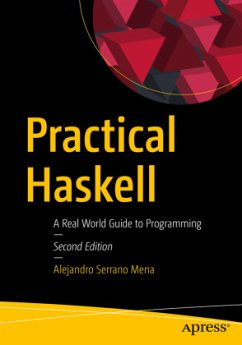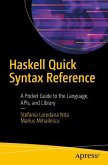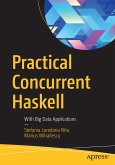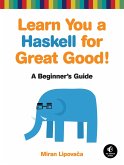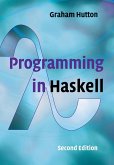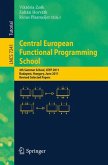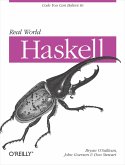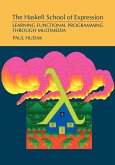Get a practical, hands-on introduction to the Haskell language, its libraries and environment, and to the functional programming paradigm that is fast growing in importance in the software industry. This book contains excellent coverage of the Haskell ecosystem and supporting tools, include Cabal and Stack for managing projects, HUnit and QuickCheck for software testing, the Spock framework for developing web applications, Persistent and Esqueleto for database access, and parallel and distributed programming libraries.
You'll see how functional programming is gathering momentum, allowing you to express yourself in a more concise way, reducing boilerplate, and increasing the safety of your code. Haskell is an elegant and noise-free pure functional language with a long history, having a huge number of library contributors and an active community. This makes Haskell the best tool for both learning and applying functional programming, and Practical Haskell takes advantage of this to show off the language and what it can do.
What You Will Learn
Get started programming with Haskell
Examine the different parts of the language
Gain an overview of the most important libraries and tools in the Haskell ecosystem
Apply functional patterns in real-world scenarios
Understand monads and monad transformers
Proficiently use laziness and resource management
Who This Book Is For
Experienced programmers who may be new to the Haskell programming language. However, some prior exposure to Haskell is recommended.
You'll see how functional programming is gathering momentum, allowing you to express yourself in a more concise way, reducing boilerplate, and increasing the safety of your code. Haskell is an elegant and noise-free pure functional language with a long history, having a huge number of library contributors and an active community. This makes Haskell the best tool for both learning and applying functional programming, and Practical Haskell takes advantage of this to show off the language and what it can do.
What You Will Learn
Get started programming with Haskell
Examine the different parts of the language
Gain an overview of the most important libraries and tools in the Haskell ecosystem
Apply functional patterns in real-world scenarios
Understand monads and monad transformers
Proficiently use laziness and resource management
Who This Book Is For
Experienced programmers who may be new to the Haskell programming language. However, some prior exposure to Haskell is recommended.

